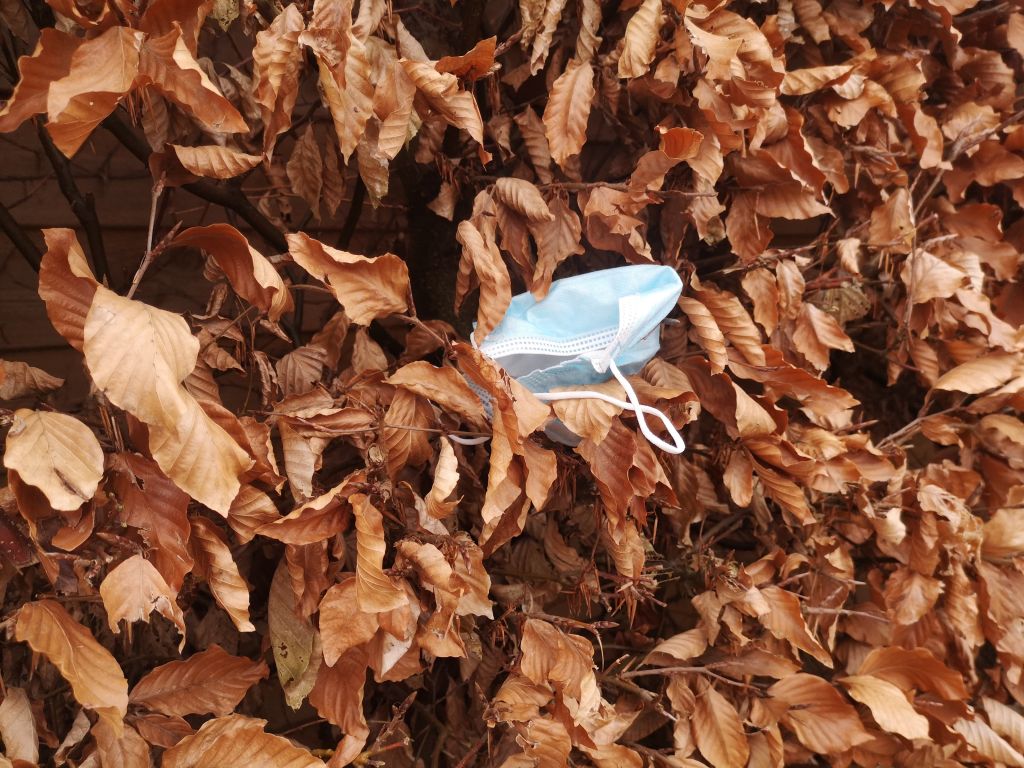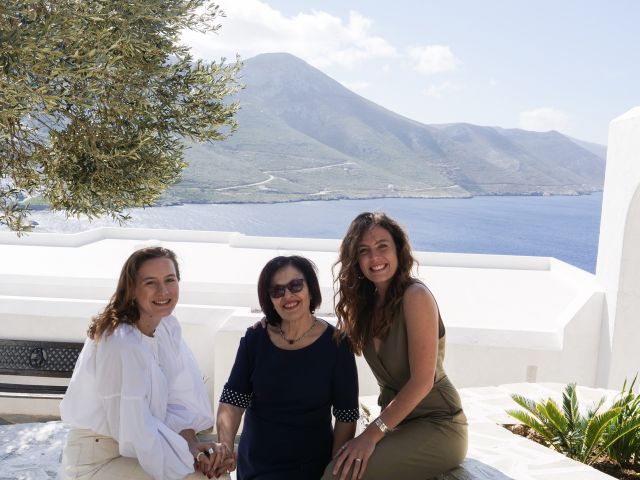Disposable or reusable face masks? That’s the question

Photo credit: Mary Caporal Prior
Blog | 12. Mar 2021
By Ida Iuel, Camilo Mondaca, Martyna Anna Jurek, Ida Hjorth & Valentine Rasse CBS and COSI students
The year 2020 was supposed to be filled with several sustainability events and new strict goals for the world’s future, but already by the end of 2019, China was recording cases of a novel coronavirus disease (COVID-19) – warning the rest of the world about what ultimately led to the current pandemic. Only a few months later, COVID-19 had spread to the rest of the world, including Europe, causing lockdowns and restrictions in many countries.
This was our first meeting with face masks!
Worldwide, we went from not only seeing the masks on everyone in public areas, but finding them lying on the ground – ending up in nature and oceans.
Being socially responsible is an important facet of sustainability, and thus wearing masks can be seen as a sustainable approach in itself. But it is not that simple, and the excessive use of face masks has a substantial impact on the environment.
Therefore, when we were presented with the choice of wearing either reusable or disposable masks, we would choose reusable ones!
Yet, when diving into the topic of the production, materials, efficiency of protection, and disposal, we realized the complexity of making the best choice.
The question is not which mask is sustainable, but which mask is more sustainable
When trying to understand the problem of finding the most sustainable mask, we decided to follow a systemic approach to assessing the face mask challenge holistically.
Our study covered an engineering part in terms of a life cycle assessment, consumer behaviorism, business model analyses, and a discourse analysis of the cultural differences between selected countries affected by the COVID-19 pandemic.
If you consider just one independent use, then one disposable mask would be preferable to one reusable mask. But then your assessment would also be incomplete.
As the reusable mask is made to be reused, the comparison must include the number of uses during its lifetime. This is one of the basics of life cycle assessment. Considering this, the reusable mask is the most preferable!
This is due to the fact that for both masks, it is the production phase that has the highest burden on the environment so theoretically, the more you use the masks, the more you reduce their environmental burden.
Yet, the disposable mask is currently the predominantly used mask! While the reusable face mask is the more sustainable choice of mask, it is not without environmental impact. From the life cycle assessment, we found that the reusable face mask also relates to issues such as global warming, ionizing radiation, mineral resource scarcity and fossil resource scarcity.
When exploring the topic, we discovered that it is not always so easy to figure out the sustainable choice, as there might be elements in the supply chain that are harming more than the product is doing good overall. This is something that needs to be addressed, so we can all make more sustainable choices.

(Photo: Anne M. Lykkegaard)
When answering our research question: “What sustainability challenges does the use of face masks bring?”, the answer is multifaceted.
One aspect is the cultural and behavioral challenge of getting used to wearing a mask and using it properly. Then there is the environmental challenge of creating a mask that has a low impact in both production and disposal. Maybe even one that could be recycled. Since the components of a disposable mask (aluminum wire, nylon straps, and cotton pad) are difficult to dismantle, it all goes to waste. In fact, aluminum is a very easily reusable metal and if recycled, it could help the disposable face mask with its sustainable rating. Until this is a reality, reusable masks win the sustainable award.
How to solve this challenge?
Luckily, some companies have already started looking for alternative materials. Among these is Geochanvre, a French company that produces biodegradable face masks made out of hemp fibers. Another company, Plaxtil is recycling face masks into a material that can be further used to manufacture the face-mask straps or face shields.
This kind of innovation could be exactly what we need to keep the environmental price at a lower level. Another aspect is the impact of establishing efficient waste management with recycling of disposable face masks.
However, this would take much more planning and implementation time than switching to reusable masks.
Since the pandemic has proved that it will be staying with us for some time, we had all better make the best of it and protect ourselves and others. We hope that this blog post will help you choose and use your face mask – and do it in the most sustainable way possible.
Thank you for reading this blog post, if you wish to read the full report, feel free to contact us at:
Stay safe everyone!

































































































































Comments